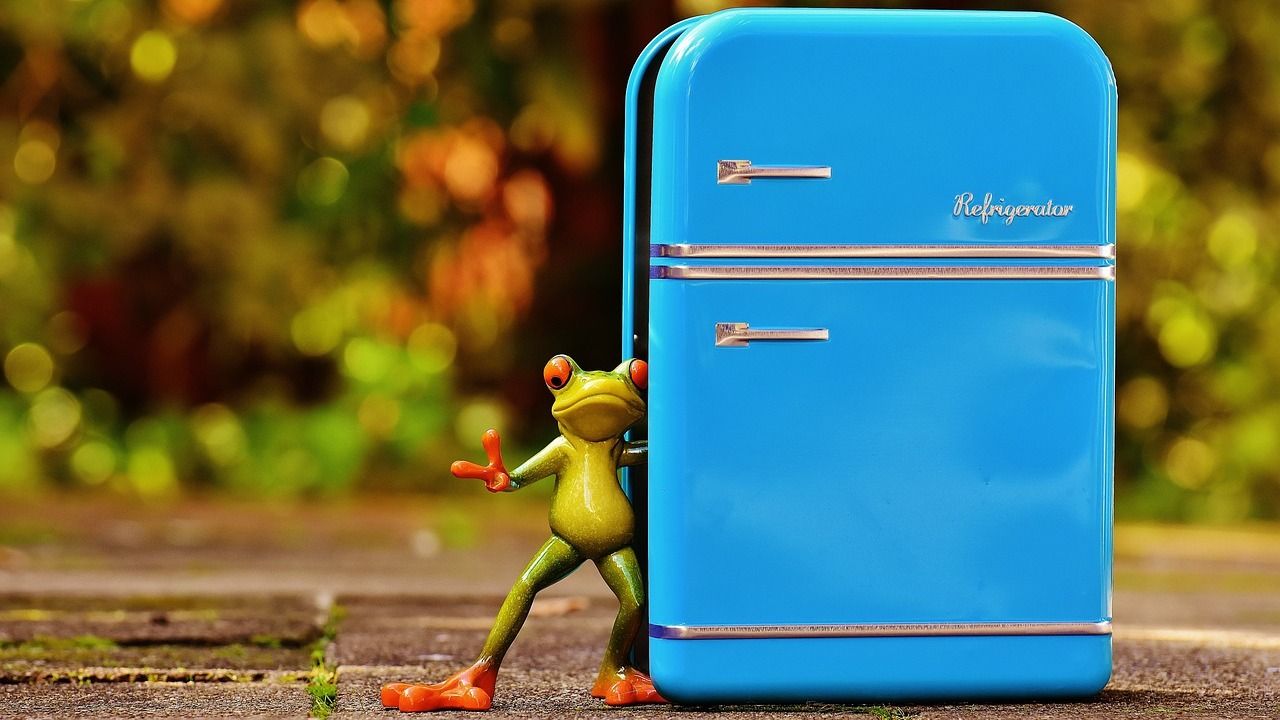
The Chilling Truth: Understanding Why Your Fridge Isn’t Cooling and How to Fix It
Introduction
The refrigerator is a cornerstone of the modern kitchen, quietly preserving our food and beverages. However, when this essential appliance stops cooling effectively, it can cause a significant disruption, not to mention the potential loss of perishable goods. Understanding why your fridge isn’t cooling and knowing how to fix it is essential knowledge for every homeowner. This comprehensive guide will explore the various reasons behind a non-cooling refrigerator and provide practical solutions to restore its cooling efficiency.
Part 1: Unraveling the Causes
The first step in addressing a refrigerator that isn’t cooling is to understand the potential underlying causes. From simple issues like improper settings to more complex problems like a faulty compressor, a variety of factors can lead to your fridge’s diminished cooling performance.
1.1 Incorrect Temperature Settings
Sometimes, the issue may be as straightforward as incorrect temperature settings. If the refrigerator’s temperature is set too high, it may not cool your food sufficiently.
1.2 Blocked Vents
Refrigerators circulate cold air from the freezer to the refrigerator section. If the vents that facilitate this air circulation become blocked, it can prevent the refrigerator from cooling properly.
1.3 Dirty Condenser Coils
The condenser coils, usually located at the back or underneath the fridge, dissipate heat as the refrigerant passes through them. If these coils become dirty or dusty, they may not be able to release heat effectively, reducing the refrigerator’s cooling efficiency.
1.4 Faulty Thermostat
A malfunctioning thermostat can fail to regulate the fridge’s temperature correctly, resulting in insufficient cooling.
1.5 Defective Fan
Both the evaporator fan (in the freezer) and the condenser fan (near the coils) play crucial roles in the cooling process. If either of them malfunctions, it can lead to a loss of cooling in the refrigerator.
1.6 Leaking Door Seals
The door seals, or gaskets, ensure a tight closure, preventing warm air from entering the fridge. If these seals are damaged or dirty, they can leak, causing the fridge to lose its cool.
1.7 Faulty Compressor
The compressor is the heart of the refrigerator’s cooling system, circulating refrigerant between the evaporator and condenser coils. If the compressor is faulty, it can severely affect the refrigerator’s ability to cool.
Part 2: Practical Solutions for a Fridge That Isn’t Cooling
Once you’ve identified potential reasons why your fridge isn’t cooling, you can take steps to resolve the issue. Here are some practical solutions based on the causes outlined above.
2.1 Adjust the Temperature Settings
Check your refrigerator’s temperature settings. For optimal performance, the refrigerator should be set to around 37°F (3°C), and the freezer should be at 0°F (-18°C). If the temperature is set too high, adjust it accordingly.
2.2 Clear the Vents
Ensure the vents inside your fridge and freezer aren’t blocked by food items. Rearrange your items to allow free air circulation, and avoid overfilling your fridge, as this can restrict airflow.
2.3 Clean the Condenser Coils
Over time, condenser coils can become covered in dust and dirt. Unplug your fridge, then use a coil brush or a vacuum cleaner with a brush attachment to clean these coils, improving their heat dissipation ability.
2.4 Test and Replace the Thermostat
If you suspect the thermostat is faulty, you can test it using a multimeter. If the thermostat is defective, it will need to be replaced. This can usually be done relatively easily with basic tools, though you may wish to hire a professional if you’re uncomfortable with doing it yourself.
2.5 Inspect and Replace the Fans
The fans should be running whenever the compressor is running. If you notice that either the evaporator fan or the condenser fan is not functioning correctly, it may need to be replaced. However, this process can be complex and may best be left to a professional.
2.6 Check and Replace the Door Seals
Inspect the door seals for any signs of damage or dirt. Clean them with warm, soapy water, and then dry them thoroughly. If the seals are damaged, they may need to be replaced to ensure a proper seal.
2.7 Consult a Professional for Compressor Issues
If you’ve checked everything else and your fridge still isn’t cooling, the compressor might be the issue. Compressor problems are typically quite complex and may require professional diagnosis and repair.
Part 3: Preventive Measures for an Efficient Fridge
The key to a well-functioning fridge is regular maintenance. Here are some preventive measures to keep your refrigerator cooling effectively:
3.1 Regular Cleaning
Keeping your refrigerator clean can improve its efficiency. Regularly clean the condenser coils, interior, and door seals to ensure optimal performance.
3.2 Proper Loading
Avoid overfilling your fridge. A crowded refrigerator can restrict airflow and strain the appliance, reducing its cooling efficiency.
3.3 Periodic Checks
Regularly check your refrigerator’s temperature settings, the condition of the door seals, and the operation of the fans. Catching potential problems early can help prevent more serious issues.
3.4 Timely Servicing
Even with regular maintenance, it’s a good idea to have your fridge professionally serviced every few years. A professional can spot potential issues that might not be apparent to the untrained eye and ensure that your fridge is in top working condition.
Conclusion
A fridge that isn’t cooling can cause a lot of inconveniences, but understanding the potential causes and knowing how to troubleshoot them can save you time, money, and the headache of spoiled food. However, always remember to consult with a professional if you’re unsure or if the problem persists after your attempts to fix it. Regular maintenance, appropriate usage, and timely servicing can go a long way in ensuring your refrigerator operates efficiently, keeping your food fresh and your life running smoothly.
Appliance repair, Appliance repair in Burnaby, Appliance repair in New Westminster, Appliance repair in Vancouver, Appliance repair near me, Coquitlam, Dishwasher repair, Doctor appliance, Dryer repair, Freezer repair in Burnaby, Fridge repair in Burnaby, Oven repair, Port Coquitlam, Port Moody, refrigerator repair, Refrigerator repair in Burnaby, Stove repair, Washer repair, Washing machine repair
